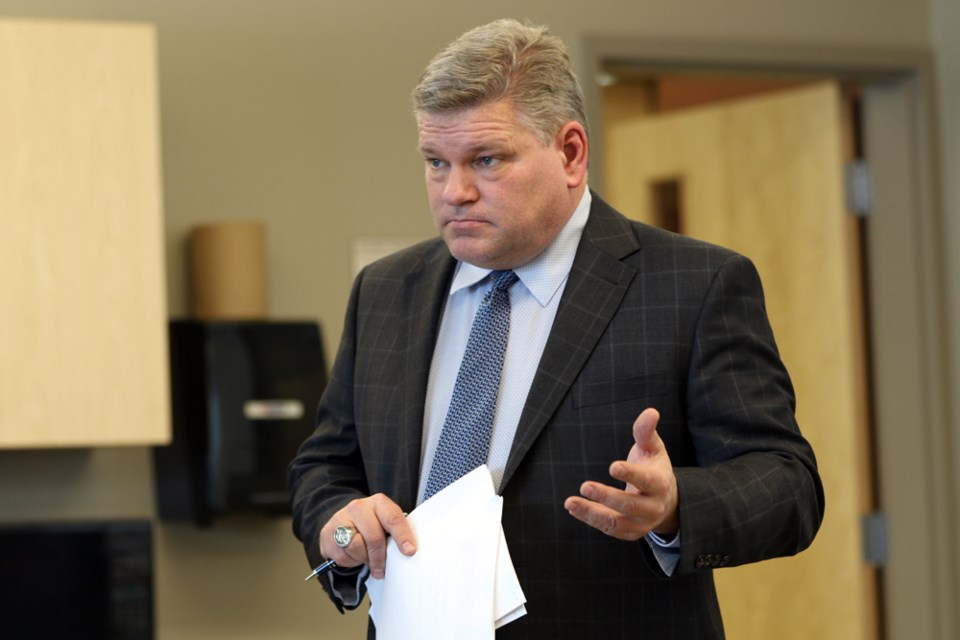Every minute, $1.4 million worth of goods cross the U.S.-Canada border. Meanwhile, the Americans have elected a new administration that’s seriously looking at how it trades with foreign countries.
That’s why local MP Randy Hoback, along with the Liberal government, is visiting Washington, D.C. in a non-partisan effort to preserve that trade relationship. Hoback was in Melfort Feb. 9 to meet with local businesses to update them on the situation and collect ideas about how to move forward in the future.
“Right now, as the president of the U.S. Chamber of Commerce told us, nobody should overreact. We shouldn’t be jumping to any type of conclusions,” he said. “Our relationship is a strong relationship. It’s a relationship built on trust and commerce and he foresees nothing changing in that aspect of it. Nor do I, but in the same breath, it’s always wise to be proactive and do what you can to make sure that something unattended doesn’t happen.”
At this point, the Donald Trump administration still has many appointments to make before it’s various departments are running at full capacity. Hoback said some of what we might have to expect is a reduction of the U.S. corporate tax to around 15 per cent and a renegotiation of NAFTA.
The MP said that since the trade agreement’s inception, Canada has had $5.3 trillion in investment.
“To have that stop would have dire consequences for our entire economy, so we have to do everything we can to keep that border open.”
There’s also some talk about adding border taxes and tariffs.
“They reassured us that they didn’t have an issue with Canada and the trade with Canada and feel that balance is relatively equal. Their concern is more with China and,” he said, “with Mexico.”
The Canadian government has a three-pronged plan: meet with Canadian businesses, advocate for the country by targeting decision makers like U.S. cabinet members and legislative committees, and engage to bridge gaps in understanding between Canadian and American businesses and consumers.
“Basically, it’s a strategy to go down into the U.S. and explain to them and remind them about the importance of the relationship,” he said. “You know, show the [data] where in 35 states, Canada is their number one customer.”
Part of that strategy is to point out to American politicians how jobs could be lost in their districts if the border is thickened with Canada – or even Mexico, as many supply chains for products involve all three countries.
“Fortunately, the American congressmen and senators understand what happens when they lose jobs in their own districts,” Hoback said. “If companies in their own district are coming to them, saying, ‘what’s going on? You’re thickening the border with Canada. I’m losing customers, plus I’m going to lay people off,’ then [congressmen will] be saying, ‘you better not make those tariffs happen, you better not be doing that.’”
The MP said he was pleased with the results of the Melfort meeting.
“There were some ideas that I hadn’t thought of, so it’s things that I can into the overall picture and see if it’s a strategy that we can use sometime in the future and make sure we have good relationships with the U.S.”
One of the ideas given was to increase costs for Americans with multi-million dollar mansions in Canada if any barrier to trade is put up by the Trump Administration.
Hoback said citizens could help by talking to their friends and relatives in the U.S. about the importance of trade.
“Just remind them, as part of your daily conversations with family and friends across the line, is that we have some concerns that you’re so focused with balancing that deficit with China and Mexico that we might get hit accidently, and that they talk to their congressman or senator to make sure it doesn’t happen to Canada.”




